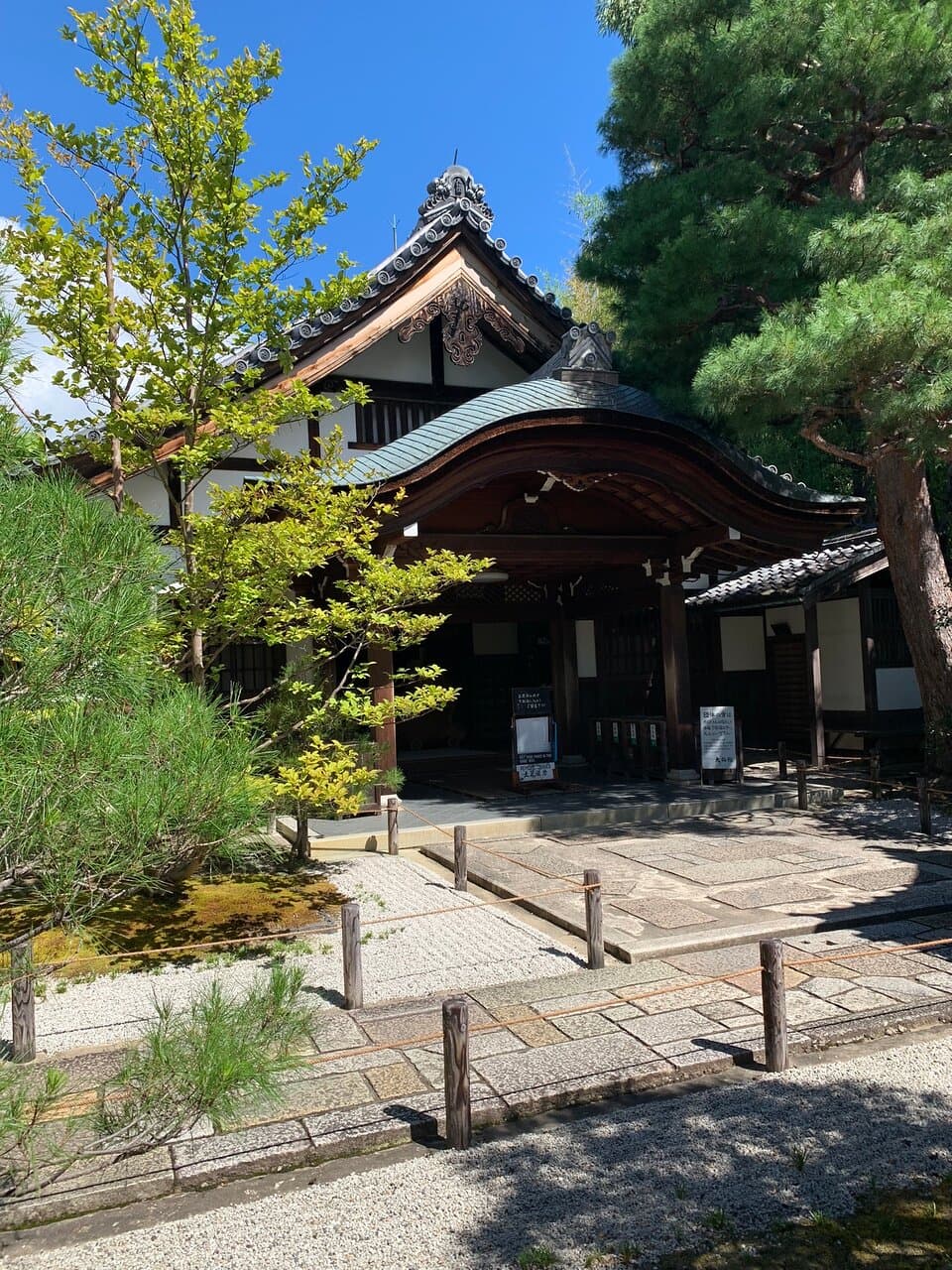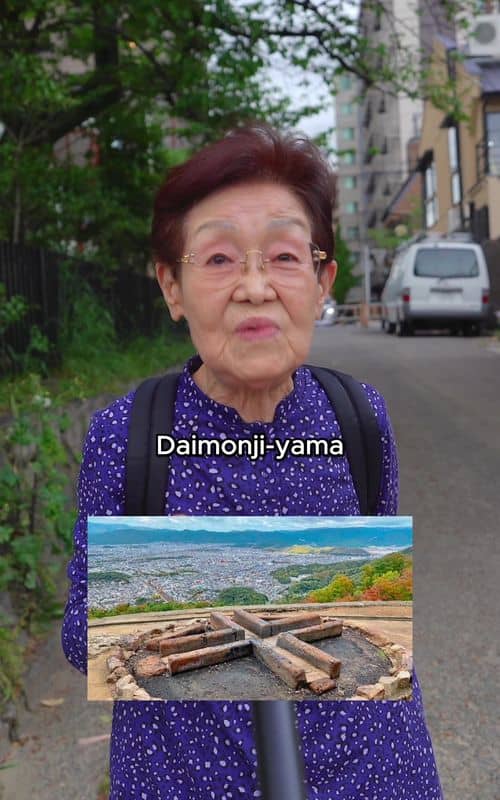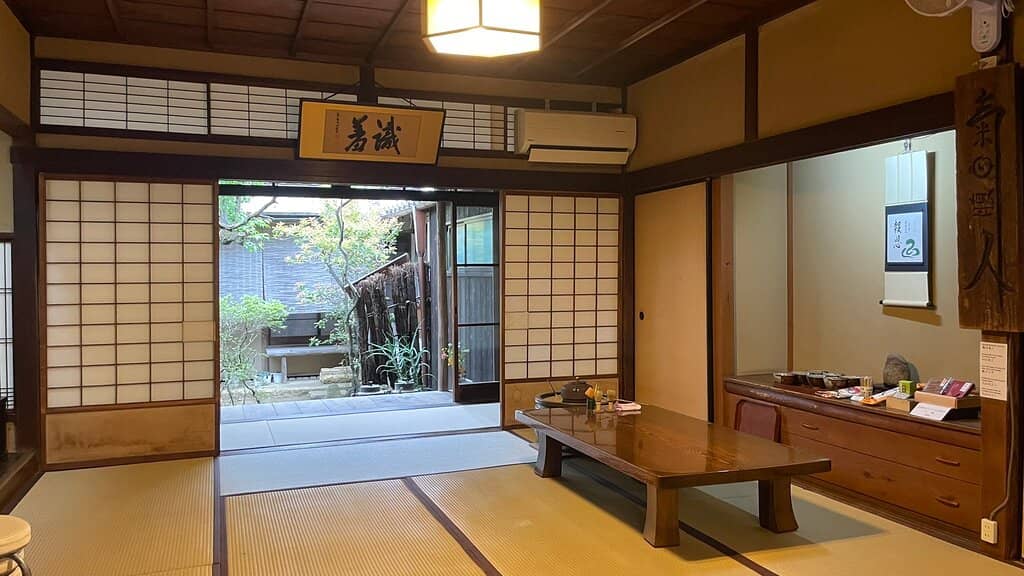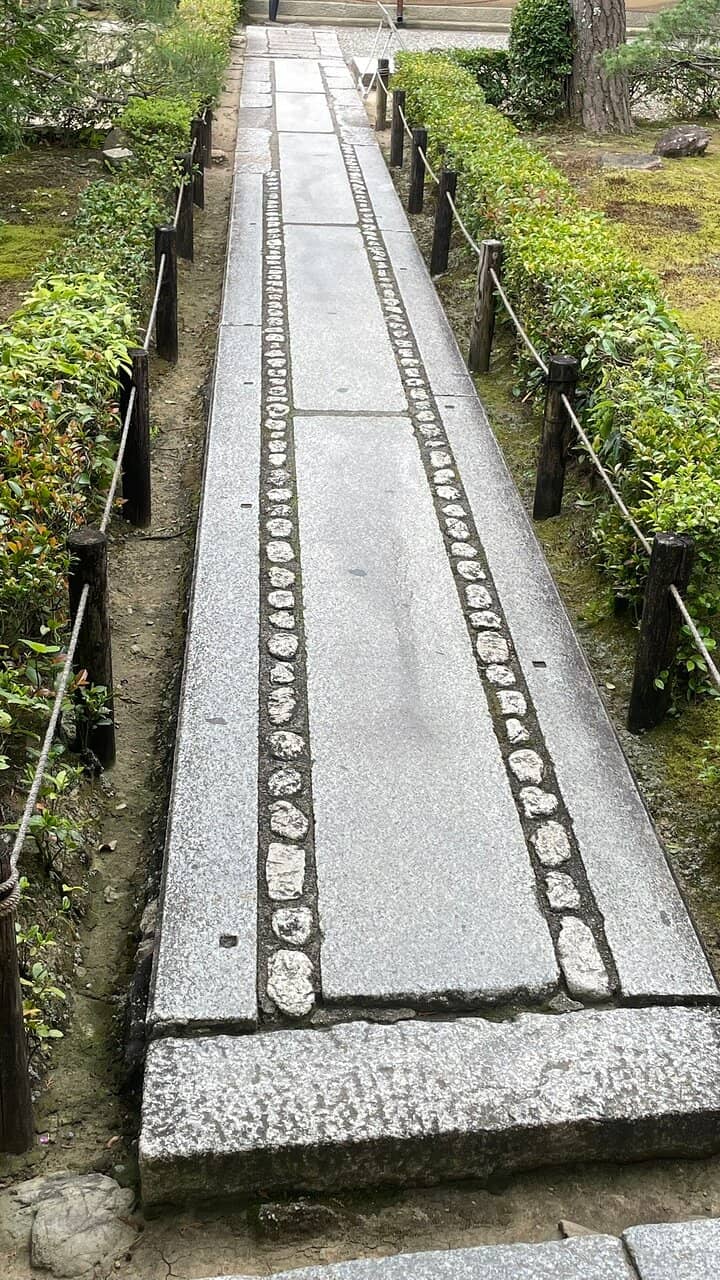
Daisen-in Daitoku-ji Kyoto
A 16th-century Zen temple in Kyoto, renowned for its ancient shoin architecture and iconic dry landscape garden.

Highlights
Must-see attractions

Social
From TikTok & Reddit
Best Time
Fewer crowds, peaceful atmosphere

Daisen-in Daitoku-ji Kyoto
Best Time
Fewer crowds, peaceful atmosphere

Highlights
Must-see attractions
A 16th-century Zen temple in Kyoto, renowned for its ancient shoin architecture and iconic dry landscape garden.
"A hidden sanctuary of Zen, history, and everyday serenity offering quiet insight."

🎯 Embrace the Quiet
Seek out this hidden gem for a peaceful escape from Kyoto's crowds.
📸 Garden Photography Allowed
Capture the iconic dry landscape garden; interior photography is restricted.

Highlights
Discover the most iconic attractions and experiences

The Dry Landscape Garden
Main Garden
A masterpiece of stone and gravel symbolizing life's journey, offering profound tranquility.

Shoin-style Architecture
Main Hall & Tokonoma
Experience Japan's oldest extant shoin-style architecture, designated as national treasures.

Meditation and Tea Ceremony
Temple Grounds
Participate in a calming meditation session followed by a traditional tea ceremony.
Plans like a pro.
Thinks like you
Planning Your Visit
Embrace the Zen: Quiet Contemplation
Photography Restrictions & Garden Access
Best Times
Insider Tips
from TikTok, Instagram & Reddit
🎯 Embrace the Quiet
Seek out this hidden gem for a peaceful escape from Kyoto's crowds.
📸 Garden Photography Allowed
Capture the iconic dry landscape garden; interior photography is restricted.
🧘♀️ Meditate for Serenity
Join a meditation session for a deeply relaxing experience.
🍵 Enjoy Matcha & Sweets
Sip matcha with a seasonal sweet for a tranquil ritual.
Tips
from all over the internet
🎯 Embrace the Quiet
Seek out this hidden gem for a peaceful escape from Kyoto's crowds.
📸 Garden Photography Allowed
Capture the iconic dry landscape garden; interior photography is restricted.
🧘♀️ Meditate for Serenity
Join a meditation session for a deeply relaxing experience.
🍵 Enjoy Matcha & Sweets
Sip matcha with a seasonal sweet for a tranquil ritual.
👟 Remove Shoes Indoors
Be mindful of temple etiquette and remove footwear before entering.
What Travellers Say
Reviews Summary
Daisen-in is lauded as a serene sanctuary offering a deep dive into Zen culture, with its iconic dry landscape garden and historical architecture being major draws. Visitors appreciate the opportunity for meditation and tea ceremonies, finding it a peaceful escape. However, some find the garden's design 'a lot' in a small space, and photography inside the halls is restricted.
"You have to try the meditation. Helps you to relax and be in the moment. Tom was great explaining the gardens and the tea. Deep respect for the monks."
Audria Garcia
"🪷 Daisen-in: A Hidden Sanctuary of Zen, History, and Everyday Serenity
As a Kyoto local, I’ve visited Daisen-in countless times—and it continues to offer quiet insight, no matter the season. Tucked within the Daitoku-ji temple complex, Daisen-in was founded in 1509 and features Japan’s oldest extant shoin-style architecture, with its main hall and tokonoma designated as national treasures.
The karesansui (dry landscape) garden is a contemplative masterpiece, symbolizing the journey of life from mountain to sea, crafted entirely from stone and white gravel. Even during the intense heat of summer, the tranquility and shade here offer a deep, refreshing stillness.
Daisen-in is also steeped in cultural lore. The legendary tea master Sen no Rikyū is said to have served tea to Toyotomi Hideyoshi in the temple’s writing hall, Shūunken. The same space holds echoes of Zen master Takuan Sōhō, who shared insights into swordsmanship with Miyamoto Musashi. It’s a rare place where Zen, tea, and martial arts converge.
Entry is only ¥500, and for ¥900, you can enjoy a cup of matcha and a seasonal sweet—the temple’s signature “Senpyō.” Sipping tea while gazing into the gravel garden is a gentle ritual I never tire of.
This isn’t just a tourist spot—it’s a spiritual refuge for locals. Whether you’re visiting Kyoto or living nearby, Daisen-in offers a subtle encounter with calm and culture that lingers long after you’ve left."
Aoba Fukata
"A wonderful meditation class with full explanation of what to expect before we started. After the 25 minutes of meditation we had a tour of thr gardens and given information on how and why the zen gardens are formed and what they represent followed by a lovely informal tea ceremony with a lovely cinnamon sweet to make the matcha less bitter."
Aimee Piggott
What People Like
What People Dislike
Frequently Asked Questions
🚇 🗺️ Getting There
Daisen-in is located within the Daitoku-ji temple complex in northern Kyoto. You can reach Daitoku-ji by bus from Kyoto Station (e.g., bus numbers 1, 12, 59, 101, 102, 204, 205, 206) and get off at the Daitokuji-mae stop. From there, it's a short walk to the Daitoku-ji entrance.
Daitoku-ji is a large temple complex that houses many sub-temples, including Daisen-in. While the main Daitoku-ji gate is impressive, exploring the individual sub-temples like Daisen-in offers unique experiences.
Yes, Daisen-in is one of the more well-known sub-temples within Daitoku-ji and is generally well-signposted. Look for signs directing you to Daisen-in once you enter the main Daitoku-ji grounds.
Buses are a very convenient way to reach Daitoku-ji and Daisen-in from various parts of Kyoto. Consider purchasing a Kyoto City Bus All-day Pass if you plan on using buses frequently.
Taxis are an option, but can be more expensive, especially during peak hours. If you prefer direct transport, a taxi will take you to the Daitoku-ji complex.
🎫 🎫 Tickets & Entry
Daisen-in is typically open from 9:00 AM to 5:00 PM daily. It's always a good idea to check their official website or local listings for any seasonal changes or special closures.
The entrance fee for Daisen-in is generally around ¥500. This fee grants access to the temple grounds and its famous gardens.
Advance booking is usually not required for general entry to Daisen-in. You can purchase tickets at the entrance counter upon arrival.
Yes, for an additional fee (around ¥900), you can often enjoy a cup of matcha tea and a seasonal sweet, known as 'Senpyō', while admiring the garden.
While the temple grounds offer a serene experience, some areas may have uneven terrain or steps. It's advisable to inquire directly with the temple for specific accessibility information.
📸 📸 Photography
Photography is generally prohibited inside the main temple halls and chambers to preserve the historical artifacts and maintain a tranquil atmosphere.
Yes, photography of the famous dry landscape garden and other outdoor areas is permitted. This allows visitors to capture the beauty of the Zen garden.
Be respectful of other visitors and the serene environment. Avoid using flash photography, especially if it might disturb others or the monks.
The dry landscape garden offers iconic views. Try to capture the raked gravel and strategically placed rocks from different angles. The surrounding greenery also provides beautiful backdrops.
Tripod usage might be restricted, especially during busy periods, to ensure smooth visitor flow. It's best to check with staff on-site if you plan to use one.
🎫 🧘 Zen Experience
Yes, Daisen-in is known for offering meditation sessions, often held in front of the Zen garden. These sessions are highly recommended for a truly immersive experience.
Meditation sessions typically last around 30 minutes, providing a focused period of mindfulness and calm.
Indeed, a tea ceremony is often offered after meditation or as a standalone experience, allowing visitors to enjoy matcha and traditional sweets in a serene setting.
The dry landscape garden, or karesansui, at Daisen-in is one of Japan's oldest and most significant. It symbolizes the journey of life, from mountains to the sea, using only rocks and gravel.
The temple offers insights into Zen Buddhism through its gardens, architecture, and sometimes through guided explanations during meditation or tea ceremonies.
For Different Travelers
Tailored advice for your travel style
👨👩👧 Families with Kids
It's important to manage expectations regarding noise levels, as Daisen-in is a place for quiet reflection. Consider visiting during less crowded times and perhaps focusing on the visual aspects of the garden and architecture. The historical stories associated with the temple might also capture the imagination of older children.
🧘 Solo Travelers & Mindfulness Seekers
As a relatively less crowded temple compared to some of Kyoto's more famous sites, it allows for a more personal and introspective experience. The opportunity to enjoy matcha and sweets in a peaceful setting further enhances the sense of calm and well-being.
🏛️ History Buffs
The dry landscape garden itself is a historical artifact, representing a key period in Japanese garden design and Zen philosophy. Understanding the symbolism and context behind its creation adds immense value to the visit.
Deep Dives
In-depth insights and expert knowledge
The Art of the Karesansui Garden
This garden is not meant for strolling but for quiet observation from the veranda of the main hall. Its symbolism is rich and layered, with different interpretations possible depending on the viewer's perspective. The careful arrangement of elements encourages a meditative state, allowing visitors to connect with the principles of Zen Buddhism.
Many visitors find the garden to be a powerful tool for mindfulness. The simplicity and deliberate design create a space for introspection, making it a highlight for those seeking a deeper understanding of Japanese aesthetics and spirituality.
Historical Significance and Architecture
The temple is also steeped in cultural lore, with connections to prominent historical figures. The legendary tea master Sen no Rikyū is said to have served tea to Toyotomi Hideyoshi in the temple's writing hall, Shōunken. Furthermore, Zen master Takuan Sōhō, known for his teachings on swordsmanship, is associated with the temple, having shared insights with the famous swordsman Miyamoto Musashi.
These historical connections add another layer of depth to a visit to Daisen-in, offering a glimpse into the intersection of Zen Buddhism, art, and martial traditions in feudal Japan. The temple serves as a living testament to this rich cultural heritage.
Experiencing Zen: Meditation and Tea
Following meditation, or as a separate experience, a traditional tea ceremony is often conducted. This ritualistic practice, known as 'Senpyō' when paired with a seasonal sweet, offers a moment of calm reflection while enjoying matcha. The combination of Zen meditation and the mindful practice of tea drinking provides a holistic approach to experiencing the temple's spiritual essence.
These programs are highly recommended by visitors for their authenticity and the opportunity to connect with the temple's core values. They offer a unique way to understand the principles of Zen Buddhism beyond just observing the gardens and architecture.






Social
from TikTok, Instagram & Reddit